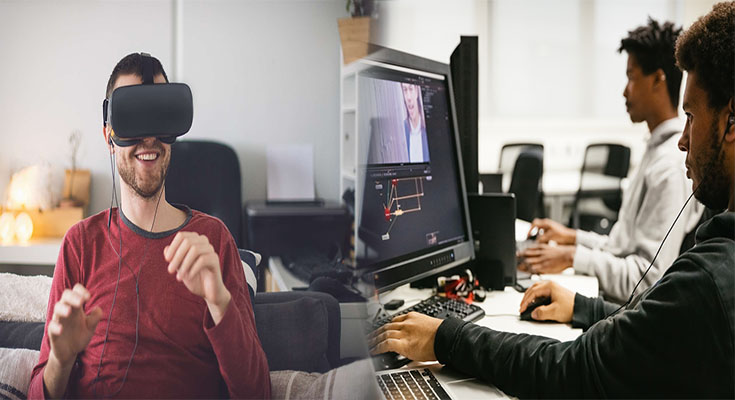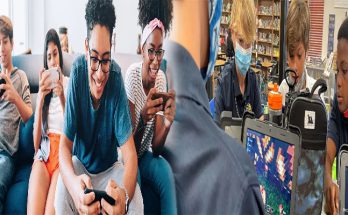Serious games have gained traction as a powerful tool for enhancing skill development and mastery among teenagers. These games, which are designed to educate and train players while engaging them in an entertaining gaming experience, offer a unique approach to fostering essential skills such as critical thinking, problem-solving, creativity, and collaboration. Let’s explore how serious games are shaping the landscape of teen skill development and catalyzing mastery in various areas.
1. Engaging and Immersive Learning Experience
Serious games provide teenagers with an engaging and immersive learning experience that captivates their attention and encourages active participation. By blending educational content with game mechanics and interactive elements, these games create a dynamic environment that motivates teens to explore, experiment, and learn through hands-on experiences. The immersive nature of serious games makes learning enjoyable and meaningful, leading to deeper engagement and retention of knowledge.
2. Targeted Skill Building
Serious games are specifically designed to target and develop a wide range of skills in teenagers. Whether it’s honing problem-solving abilities, enhancing critical thinking skills, building communication and collaboration competencies, or fostering creativity and innovation, serious games offer a platform for teens to practice and master these skills in a virtual setting. Through gameplay, teenagers can engage in skill-building activities that are challenging, interactive, and rewarding, facilitating their growth and development in various areas.
3. Real-World Application
Serious games often simulate real-world scenarios, allowing teenagers to apply their skills in practical contexts and make decisions that have tangible consequences. By presenting challenges and dilemmas that mirror authentic situations, these games encourage teens to think critically, strategize effectively, and practice problem-solving skills in a safe and supportive environment. The opportunity to apply learned skills in real-world scenarios enhances retention and transferability, enabling teens to bridge the gap between theory and practice.
4. Personalized Learning Journey
Serious games offer a personalized learning journey for teenagers, adapting to their individual needs, preferences, and skill levels. Through adaptive algorithms and customized feedback mechanisms, these games tailor the gameplay experience to match the unique characteristics and learning objectives of each player. By adjusting the game dynamics, challenges, and pacing based on the player’s performance and progress, serious games provide a personalized and adaptive learning environment that maximizes engagement and skill development.
5. Motivation and Mastery
Serious games leverage motivational elements such as goal-setting, progress tracking, feedback, rewards, and competition to inspire teenagers to strive for mastery. By setting clear goals, providing instant feedback, recognizing achievements, and offering incentives for progress, these games create a sense of accomplishment and motivation that drives teens to master new skills and overcome challenges. The element of mastery in serious games instills a growth mindset, resilience, and determination in teenagers, empowering them to persist in their pursuit of skill development.
6. Collaboration and Social Skills
Many serious games incorporate multiplayer features that promote collaboration, teamwork, and social interaction among teenagers. By engaging in cooperative gameplay, competitive challenges, and group activities, teens can cultivate essential social skills such as communication, teamwork, leadership, and conflict resolution. The collaborative nature of serious games encourages teens to work together towards common goals, share ideas, and engage in meaningful interactions that foster social-emotional development and relationship-building.
7. Lifelong Learning and Continuous Improvement
Serious games instill a culture of lifelong learning and continuous improvement in teenagers by encouraging them to engage in iterative gameplay, seek feedback, and strive for mastery over time. The iterative nature of serious games allows teens to practice and refine their skills through repeated gameplay, gradually advancing from novice to expert levels. By promoting a growth mindset, resilience, and a commitment to ongoing learning and improvement, serious games empower teenagers to embrace challenges, learn from failure, and adapt to changing circumstances.
Serious games play a pivotal role in enhancing skill development and mastery among teenagers, offering an engaging, interactive, and personalized learning experience that fosters critical skills and competencies. By providing an immersive learning environment, targeting specific skills, promoting real-world application, offering personalized learning journeys, fostering motivation and mastery, cultivating collaboration and social skills, and encouraging lifelong learning and continuous improvement, serious games are shaping the future of teen skill development. As the field of serious games continues to evolve, the potential for these innovative educational tools to empower teens and catalyze mastery in various areas remains a promising avenue for transforming education and preparing adolescents for success in the digital age.





